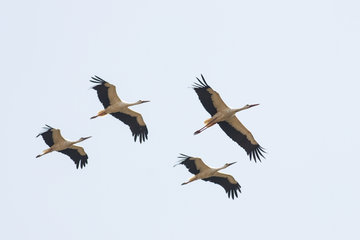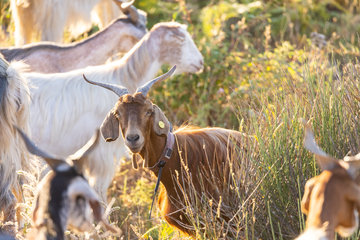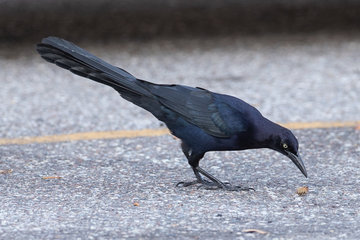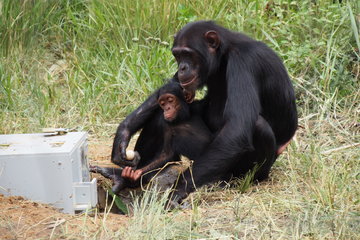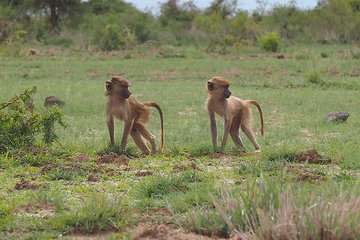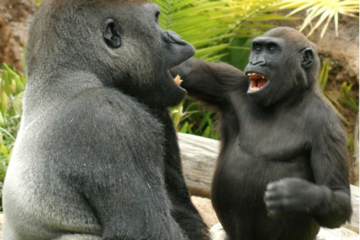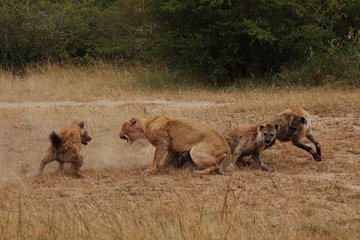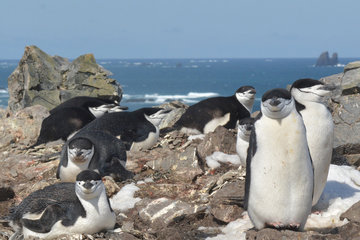Icarus starts first global research project
The scientific pilot phase of the earth-spanning animal observation system begins
With the satellite-based animal monitoring system, researchers want to explore the collective knowledge of the animals on earth. The cooperation project of the Max Planck Society, the Russian space agency Roscosmos, and the German Aerospace Center (DLR; Deutschen Zentrums für Luft- und Raumfahrt) has successfully completed a test phase lasting several months. During this phase, the animal transmitters as well as the system components on the ground and on board the International Space Station ISS were examined. The first cross-continental scientific pilot project is set to begin in mid-September. The Icarus scientists want to track several thousand blackbirds and thrushes in Europe, Russia, and North America from space with the help of small transmitters attached to the backs of the birds. Together with 24 other cooperation projects in the “Bridges for German-Russian Higher Education Cooperation” competition, the Icarus project received accolades from the foreign ministries of both countries.

Icarus started its test operation in mid-March 2020. During the technical testing phase, the communication between the Icarus system and the animal transmitters was simulated, and the signal strength and transmission time of the antenna was checked. Now that all tests have been completed, the scientific operation can begin. “The data transmission from the ground to the ISS works 10 to 15 times better than expected”, explains Martin Wikelski, co-initiator and head of Icarus, Director at the Max Planck Institute of Animal Behavior in Constance/Radolfzell, and professor at the University of Constance. “We can now carry out our research projects.”
At the heart of Icarus are transmitters weighing four grams. These can be attached even to small animals such as songbirds. These miniature measuring devices have various sensors that continuously record the behavioural and health data of the animals. The transmitters can also record environmental conditions such as temperature, humidity, and air pressure. The data is decoded by a receiving station on the ISS and transmitted to the ground station in Moscow. From there, the data is transferred to Movebank, a global database for animal movements.
Analysis of bird migration

5000 transmitters are currently being produced for a pilot study in Memmingen, Germany. Starting in September 2020, the Icarus scientists will attach these to blackbirds and thrushes in Europe, Russia, and North America so that they can study the migratory behaviour and survival strategies of the birds. A further 16 scientific projects by Russian researchers will be launched in the coming months. Hundreds of research groups around the world also want to undertake further joint studies with Icarus.
The new technology can be used not only to answer biological questions (e.g. where fruit bats fly to in Africa and where they encounter Ebola viruses or where sea turtles spend their youth and where most of them die) but also to change our everyday lives. It could also be used to transmit other technical or environmental data such as tree growth, ocean currents, or glacier melt. From the combined information of thousands of animals, a synopsis of life on earth is created, the so-called 'Internet of animals'.
The Icarus technology could also change our daily lives. “Icarus sends small data packets back and forth all over the world without human intervention – similar to the ever-increasing networking of everyday objects, the so-called Internet of Things. It represents a new and completely digital communication system”, explains Wikelski. The importance of Icarus is also recognized by the award in the competition "Bridges for German-Russian University Cooperation" by the Foreign Ministries of both countries on September 15 in Berlin.






